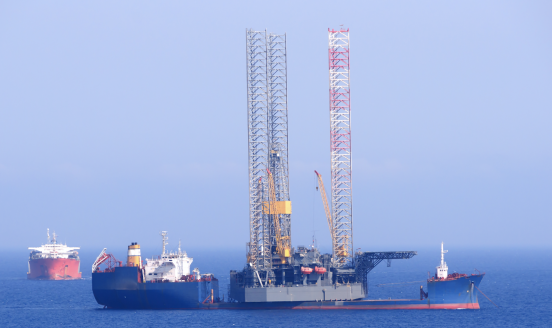What should the EU do about the Turkish currency crisis?
The Turkish lira has been under significant pressure in recent weeks; in this blog post, the authors discuss the EU’s exposure to possible crisis in T

What is the problem?
The Turkish lira has lost more than 30% of its value against the US dollar since the beginning of this year. After the political escalation of tensions between the US and Turkey and the increase in tariffs on some Turkish imports last week, the lira was temporarily in free fall. The situation seems to have stabilised now, but there are still significant questions on the economic situation.
Turkey has, according to the IMF, about 23% of short-term external debt – i.e. about $180bn of external debt – mostly from non-financial corporates that needs funding. The IMF has warned of the overheating economy for some time and called for more caution on the fiscal guarantees on banks’ loan programmes and other implicit liabilities. Nevertheless, Turkey’s public-debt-to-GDP ratio is limited to around 28% and the deficit is above 3%. The current account deficit is above 5%. So the overall numbers indeed suggest that a correction in macroeconomic policies is needed.
It is too early to say that Turkey will need a bail-out programme, as some have suggested. Certainly, if the political conflict with the US escalates, the nervousness in markets towards funding Turkey will increase. And while the lira has stabilised in the last few days, the whole situation certainly calls on European policy makers to reflect on what should be the EU’s position towards Turkey.
What are the reasons for the EU to care?
There are three main reasons for the EU to care about the current Turkish crisis. First, a financial crisis in a neighbour country of the EU could have a direct negative impact on the EU economy, mainly through the exposure of its banks operating in Turkey (in particular from Spain, France, Italy and Germany) and through trade with Turkey.
Compared to the size of the European economy, these exposures to Turkey are relatively small and should be manageable. However, even though the European recovery started in 2013, some European countries are still vulnerable – as could be seen in the reactions of bond markets for Greece and Italy. To what degree Turkey’s economic problems will lead to a strong loss of confidence in other emerging markets is a moot point. The fall in the rand, the rupee or the Mexican peso suggests some contagion – but there are also more cautious assessments: direct contagion should not be very strong, but there are some global common causes that drive an increase in risk spreads for emerging markets, such as the normalisation of monetary policy and the strengthening of the dollar. With Turkey’s GDP standing at roughly $900 billion, the economic ripple effects of a possible deepening of the crisis in Turkey should be manageable for the EU.
The second reason to worry about a crisis in Turkey is because of possible political knock-on effects and resulting changes in Turkey’s migration policy. Turkey is a transit country for most refugees, but also economic migrants, that want to come to Europe from the Middle East and Asia. The EU has a deal in place with Turkey on Syrian refugees. Could a financial crisis change politics so much that it would lead to a change in Turkey’s approach to migration? The answer to that question is of great importance to the European Union.
Finally, geopolitical considerations are also important. President Erdogan has already announced that his country could turn its back on the West and look for new allies. Turkey has been a NATO ally since 1952 and has for a long time played an important supporting role in the Middle East for western countries. Moreover, Turkey is still officially an EU accession country. Turkey might find it difficult to identify other allies that would be able to fund it in case the crisis deteriorates strongly. However, that view presupposes a rational approach to the situation. So the EU should be carefully considering the geopolitical threat, as it would obviously have strong implications for the EU.
What are the instruments the EU has at its disposal if Turkey was to request help?
The IMF is the obvious candidate to provide financial assistance to a country with a textbook balance-of-payments crisis, in clear need of dollar funding. However, even though the US does not have a veto right in the executive board of the IMF, de facto it might be difficult to put in place an IMF programme without the US agreeing to it. And such an agreement could prove difficult to reach these days, given the current stance of the US administration towards Turkey and its recent decision to impose sanctions and to double tariffs on Turkish steel and aluminium.
If an IMF programme is difficult to reach (or if Turkey does not want to deal with the IMF) and EU countries think it is in their best interest to avoid an escalation of the crisis in Turkey, the EU could try to organise a financial support package on its own. In fact, the EU has some instruments to raise funds and provide financial assistance to countries experiencing financial difficulties.
In particular it could use its Macro-Financial Assistance (MFA) programme, reserved for non-EU partner countries. This has been used in recent years to help countries of the EU neighbourhood such as Tunisia, Jordan, Moldova, Georgia and Ukraine.
What makes it difficult to intervene for the EU?
However, using an MFA programme for Turkey might prove difficult. First, the EU explicitly states that “a pre-condition for granting MFA is the respect of human rights and effective democratic mechanisms”, which might be difficult to justify for Turkey after the systematic crackdown on the Turkish press and political opponents of the last two years.
Second, the involvement of the IMF is also considered necessary as an “MFA is also conditional on the existence of a non-precautionary credit arrangement with the IMF and a satisfactory track-record of implementing IMF programme reforms”.
Third, the amounts of MFA loans are generally quite limited and far from what a Turkish bailout would require in the current crisis (the largest MFA involvement – to Ukraine – amounts in total to only €3.4 billion). In fact, to cover potential defaults on these loans, the EU has established a Guarantee Fund for External Actions that needs to represents 9% of the liabilities and that is constituted by gradual payments from the EU budget (see Regulation 480/2009) thus limiting considerably the lending capacity of the MFA.
In conclusion, what should the EU do?
The question of whether to provide support to Turkey first and foremost depends on the Turkish government actually wanting support. But deciding to support Turkey is a difficult political question for the EU.
First, it should be clear that EU countries are more vulnerable to a possible Turkish meltdown than the US due to their geographic proximity. The EU should therefore quickly develop a common position and be able to act with appropriate instruments. That suggests that the EU’s MFA instrument should be made independent of IMF decisions, which is not the case as it stands today.
Second, the EU needs to form a clear view on whether such an instrument should be a way to advance democratic values, or whether the EU should have a more functional approach – like the IMF – and limit conditionality on specific macro-structural policies.
Some European politicians such as Bundestag Green member Cem Özdemir already announced that no support should come from the EU “without a return to democracy and rule of law”. But asking for political change in the context of financial assistance could dramatically backlash in Turkish domestic politics. It could be used by Erdogan as an argument that the West and the EU are part of a conspiracy against him and Turkey. The EU thus needs to walk a careful line.
However, good governance is fundamental for the long-term well-being of Turkey and for the implementation of sound economic policies. One of the reasons for market nervousness towards Turkey is grounded in the fact that the Turkish president has appointed his son-in-law to be the finance minister, casting doubt on the quality of policies.
In the end, the EU’s best approach is to wait and see how Turkish domestic politics evolves. But, in the meantime, the EU cannot be an indifferent bystander. It needs to develop its own policy line and its proper instruments now.

